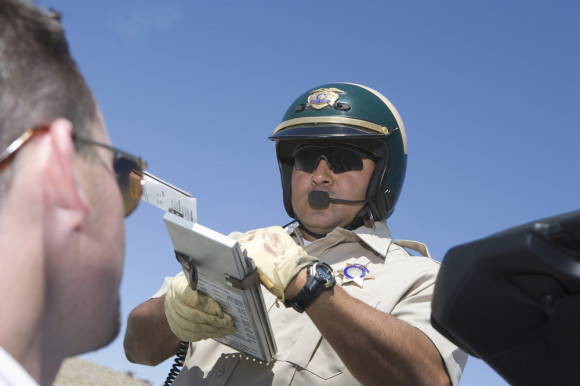A Florida Supreme Court decision banning an app-based service from connecting ticketed drivers with lawyers may be a win for the law profession, but it is another impediment to average citizens gaining access to the court system, critics said.
“This doesn’t help consumers,” said Tom Gordon, executive director of Responsive Law, an advocacy group that filed an amicus curiae brief in the case. “The court itself said there was no evidence of harm” in what the app was offering, and that at least some drivers had benefitted from legal aid that kept speeding tickets off their records and away from their insurance premiums.

The high court last week overruled a Florida Bar referee’s finding that the service known as TIKD had not engaged in the unauthorized practice of law. The service allowed users to pay a fee and upload a photo of the ticket. TIKD would then assign the case to a participating lawyer. If the case was not resolved in the driver’s favor and points were assessed against the driver’s license, the fee would be refunded. Attorneys were paid a flat fee.
But the Supreme Court leaned on a 1962 court ruling that held that giving advice that affects peoples’ rights under the law, and when that advice requires knowledge of the law, it constitutes the practice of law.
The Florida justices worried that TIKD was too profit-motivated and could miss important court deadlines, leaving users with black marks on their driving records through no fault of their own. Mostly, though, the court seemed to fear that unlike with licensed lawyers, the Bar and the Supreme Court would have no way to discipline the app’s principals in case of irregularities.
“Because TIKD is not a law firm, there are no protections in place to safeguard the money of these legal clients and thereby assure that the money is actually available to satisfy the future legal obligations associated with the legal matter,” Justice Alan Lawson wrote for the majority.

Lawson went on to write that legal-profession regulations are designed to “enforce high standards of conduct that would naturally flow, without regulation, from a professional culture in which attorneys are routinely inculcated with classic virtues such as courage, truthfulness, diligence, humility, and an internalized ethic that places fidelity to just action, client loyalty, and support for the institutions that make freedom under the rule of law possible above raw financial gain.”
The opinion concluded: “We will certainly not jettison these ideals by sanctioning the unregulated commoditization of legal services—a paradigm shift that would put corporations governed solely by the profit motive between lawyers and their clients.”
The attorney representing a law firm that already provides similar services said the ruling is a win for lawyers and for Florida drivers.
“When you allow companies not owned by lawyers to sell legal services, you put consumers at risk,” said attorney Jim McGuire, whose firm represents The Ticket Clinic, a law firm with a similar app. “And it puts that company at a competitive advantage over lawyers.”
And there’s the rub, Gordon said. The Ticket Clinic is part of a well-established law firm. Its principals were among the first to complain to the Florida Bar about TIKD’s app, attorneys said. The Florida Bar has become known as one of the most aggressive in the country for fending off non-lawyers who appear to offer legal services or even referrals to lawyers, Gordon said.
The high court made it clear that if TIKD and its owner, Christopher Riley, were part of a Florida law firm, they likely would not have run afoul of the Bar and legal regulations. But Gordon said that it takes a lot of capital to launch a law firm. “And most lawyers go to law school to practice law, not to start a business,” he added.
A few states, including Utah and Arizona, have relaxed restrictions on some services offering legal referrals, at least on an experimental basis. Gordon said. A Florida legal innovation program also has been proposed to the state Supreme Court.
The court decision may have little practical effect on TIKD. After the Bar began proceedings against the service in 2018, TIKD appeared to close down and its owner has not been heard from.
But despite the ruling, similar app-based services may not be far behind. One is Off The Record, which appears to operate in several states, including Florida. The website and app shows that Off The Record allows drivers to upload a photo of their tickets, answer a few questions, then “get matched to an experienced lawyer.”
The website includes a disclaimer: “While Off The Record is not a law firm, all legal representations are performed by a licensed, participating attorney. Any information you submit through this site may be provided to participating attorneys for the purpose of determining your need for legal services and may not be protected by attorney-client privilege.”
Representatives of Off The Record could not be reached for comment Wednesday.
Those types of app-based services threaten to upend the traditional methods that potential clients have used to find lawyers, the court and lawyers said. Gordon said that may be a good thing. Lawyers disagreed.
“It’s like Uber, in a way,” McGuire said. “They cut out the licensed taxi drivers and took over.”
The Supreme Court was not unanimous in its view on the TIKD app.
Justice John Couriel dissented from the court’s majority: “TIKD offered not legal services, but a business proposition: hire a lawyer we introduce, at a fee we set, and you will not bear the risk that the lawyer’s services, or indeed your ticket, will cost you more than our fee,” he wrote. “Offering that bargain does not constitute the practice of law, and thus cannot have constituted the unauthorized practice of law.”
Topics Florida
Was this article valuable?
Here are more articles you may enjoy.



 Marsh Awarded Injunction Against Former Employees Now With Howden US
Marsh Awarded Injunction Against Former Employees Now With Howden US  Florida Appeals Court Pulls the Plug on Physician Dispensing in Workers’ Comp
Florida Appeals Court Pulls the Plug on Physician Dispensing in Workers’ Comp  State Farm Inked $1.5B Underwriting Profit for 2025 but HO Loss Persists
State Farm Inked $1.5B Underwriting Profit for 2025 but HO Loss Persists  Premium Slowdown, Inflation Factors to Lead to Higher P/C Combined Ratio: AM Best
Premium Slowdown, Inflation Factors to Lead to Higher P/C Combined Ratio: AM Best 


